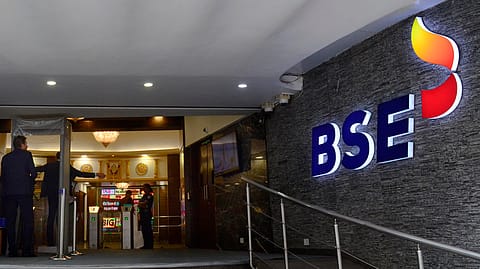BSE, Angel One, CDSL shares fall up to 7% as Sebi explores longer tenure for equity derivatives
The Sebi is looking to enhance the tenure and maturity of equity derivatives products in a calibrated manner, its chairman Tuhin Kanta Pandey said.

Shares of companies linked to India’s capital markets, such as Bombay Stock Exchange (BSE), Angel One, and Central Depository Services Ltd (CDSL), declined up to 7% on Thursday after the Sebi chairman indicated potential changes to the tenure and maturity of equity derivatives contracts.
The Securities and Exchange Board of India (Sebi) is looking to enhance the tenure and maturity of equity derivatives products in a calibrated manner, its chairman Tuhin Kanta Pandey said at the FICCI Capital Markets Conference 2025 today.
"We will consult with stakeholders on ways to improve, in a calibrated manner, the maturity profile of derivative products so that they better serve hedging and long-term investing," Pandey told reporters on the sidelines of the event.
He further said that while equity derivatives are vital for capital formation, the regulator needs to ensure quality and balance. Sebi is exploring measures to strengthen the cash equities market, while improving the depth and quality of derivatives by introducing longer-tenure products.
Reacting to the news, shares of BSE declined as much as 6.6% to ₹2,353.60, while its market capitalisation slipped to ₹96,521 crore, with 71.44 lakh shares changing hands on the NSE.
In a similar trend, Angel One shares tumbled 6% to ₹2,560.40 on the NSE, while Central Depository Services Ltd (CDSL) shares dropped nearly 1% to ₹1,556.10 apiece. Motilal Oswal Financial Services shares dropped 2.7% to hit an intraday low of ₹933.40.
In sharp contrast, NSDL shares rallied as much as 11%, while Nuvama Wealth Management added over 4%.
Over the past six years, India has rapidly become the world’s largest equity derivatives market, with average daily turnover rising from ₹92,724 crore in FY20 to ₹2.63 lakh crore in FY25, marking a 23% compound annual growth rate (CAGR). This sharp growth has been fuelled mainly by increased retail participation, particularly in equity options, as individual investors pursue quick gains.
However, the surge has come at a steep cost, with retail investors suffering significant losses in both scale and frequency. A recent Sebi study revealed that individual traders lost over ₹2.87 lakh crore in futures and options (F&O) trading over four years. The average loss per retail trader also rose sharply to ₹1.1 lakh in FY25, compared to ₹86,728 in FY24. In earlier years, the average losses were ₹1.12 lakh in FY23 and ₹95,517 in FY22.
The regulator’s findings also paint a grim picture for retail participants, with a staggering 9 out of 10 individual traders in the equity derivatives segment incurring losses, a trend that has persisted for four consecutive years.
(DISCLAIMER: The views and opinions expressed by investment experts on fortuneindia.com are either their own or of their organisations, but not necessarily that of fortuneindia.com and its editorial team. Readers are advised to consult certified experts before taking investment decisions.)
(INR CR)

